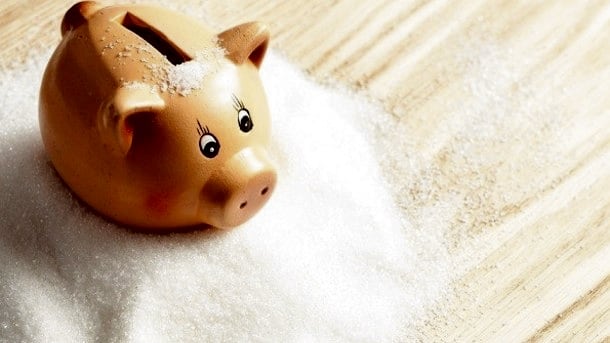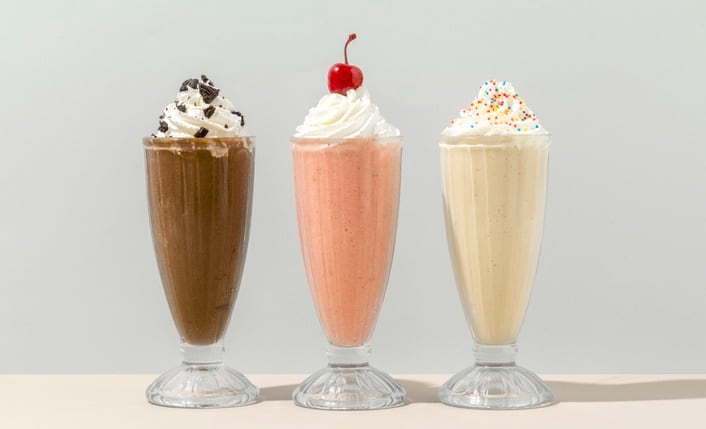Milk-based drinks are currently exempt from the UK’s Soft Drinks Industry Levy (SDIL): but the tax could now be extended to include sugary milkshakes, dairy drinks and RTD coffee.
The proposals – which represent the first major revamp of the sugar tax since it came into effect in 2018 – would see both milk-based drinks and plant alternatives (such as oat milk or rice milk) included.
Meanwhile, more drinks would be covered by the sugar tax in general: as the minimum sugar content at which the SDIL applies is set to be reduced from 5g per 100ml to 4g.
Soda tax model
The UK Soft Drinks Industry Levy (SDIL) was introduced in 2018 and has generally been considered successful in its goals to reduce sugar intake from sugary drinks and encourage reformulation across the beverage industry.
Consequently, other markets have used it as a model for their own soda tax legislation (France, for example, recently revised its long-standing sugar tax to bring it in line with the UK’s design, hoping to prompt the same drive towards reformulation).
But in the UK, milk-based drinks have had an exemption from the outset (providing they contain at least 75ml milk per 100ml).
That was because the government did not want to disincentivize calcium consumption, particularly among children, while plant-based drinks were included in this exception to ensure parity (providing they contain at least 120mg of calcium per 100ml).
But that has meant that indulgent, sugary milkshakes currently get a free pass, as does RTD coffee (which can also contain high volumes of sugar).
Action on Sugar is one of the organizations that has been pushing the government to extend the reach of the sugar tax.
“We are delighted to see the government taking steps to strengthen the Soft Drinks Industry Levy (SDIL) which has already driven significant reductions in sugar across the drinks industry, and these new proposals are a bold and necessary next step,” said Dr Kawther Hashem, Head of Research and Impact at Action on Sugar based at Queen Mary University of London.
“Furthermore, we strongly support the move to reduce the minimum sugar threshold and to end the exemptions for sugary milk-based and milk-substitute drinks. This ensures a more consistent and fair approach across all types of drinks, and it makes absolute sense for public health.
“Hopefully, these proposals will encourage even more companies to innovate and reduce the sugar and sweetness of their products, building on the progress already made.”
Dairy dilemma
The new sugar tax structure proposes removing the exemption for milk-based drinks whilst introducing a ‘lactose allowance’ to account for the natural sugars in the milk component of these drinks.
DairyUK chief executive Dr Judith Bryans said: “We’re consulting with our members to determine whether the lactose allowance goes far enough towards ensuring the natural sugar in dairy is not penalised by the extended tax. We will also continue to highlight how dairy products are a valuable source of many nutrients – not just calcium – providing iodine, high quality protein, B vitamins, phosphorous, zinc and more as part of a convenient package.
“Studies have demonstrated that milk-based drinks are an important way for many who may not like the taste of plain milk to get dairy nutrients, easily and affordably. Their inclusion in the sugar tax remains a flawed approach and risks pushing consumers towards less nutritious products, ultimately counterproductive to promoting better health outcomes long term.”
Ineffective and a blow to businesses?
But the British Soft Drinks Association (BSDA) disagrees saying that changing the rules will be a blow to businesses.
“This decision is a muddled and damaging shifting of the goalposts which risks undermining years of reformulation investment with questionable positive health outcomes,” a spokesperson told us.
“Lowering the SDIL threshold to 4g – on top of the previously-announced, backdated 27% increase to the levy – comes at a time of major and unprecedented financial headwinds for our members, from record-high inflation and NIC increases, to spiralling ingredient costs and incoming trade tariffs. Such cost increases have already impacted our members’ ability to grow their businesses and boost employment, and the lowering of the SDIL threshold risks making this even more challenging.”
To add insult to injury, the beverage industry in the UK has done more work than many other sectors across food and beverage to reduce sugar.
More than seven out of every 10 soft drinks sold in the UK are low or no sugar and the total sugar removed from soft drinks between 2015 and 2024 is just under three quarters of a billion kilograms, according to Kantar data cited by the BSDA.
With soft drinks now making up just 6.3% of total UK sugar intake, changes that overlook the complexity of the obesity crisis are ‘likely to be ineffective’, says the organization.


